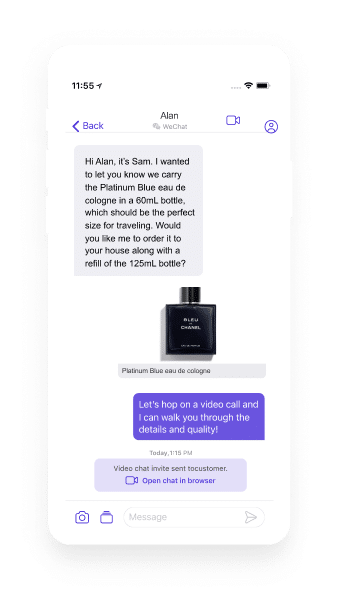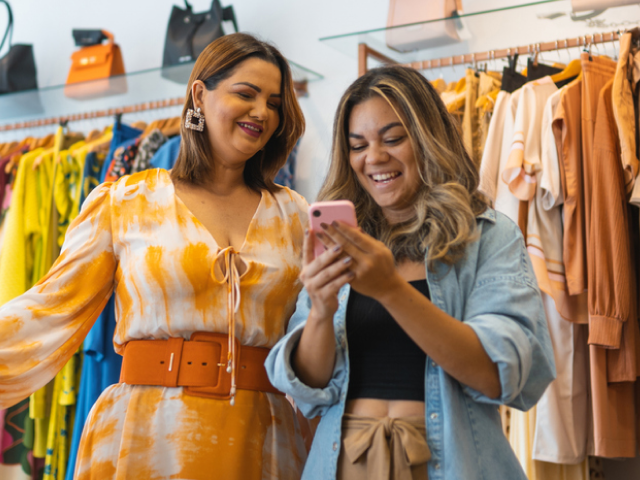A guide to meeting customer expectations after they leave the store
The retail customer life cycle has evolved drastically over the last several decades. Where once upon a time it started when a customer crossed the threshold and ended when they left, now it can begin and end however they want. Customers are starting their journey online through apps like Instagram or TikTok, and ending it when they feel like a brand is no longer a great fit.
Most retailers have already grasped how to draw in this new crowd of tech-savvy consumers through social media marketing and how to engage with them as they shop online or in-store. However, where the experience falls short is during the post-purchase aftercare and relationship maintenance.
Retailers need to stop viewing the purchase as the end of a transaction, and start viewing it as the beginning of a relationship.
Here are three best practices for post-purchase hygiene that will help keep your brand top-of-mind with consumers.
The purchase follow up
It’s a common practice in the restaurant industry for waitstaff to follow up with patrons 1-2 minutes after they have delivered their food to ensure everything is to their liking. The retail industry should be no different.
Both sales associates and restaurant waitstaff gain intimate knowledge about their customers during their interactions— how they like their burger cooked versus if they have any skin sensitivities to cosmetics. Sending a follow up text to ask how a new face cream worked should be no different than asking how they liked their cheeseburger. This is especially true for larger, more expensive purchases like luxury goods or furniture.
By sending a quick follow up message, brands convey to customers that they are more than just another sale and their loyalty is important to uphold. Additionally, this type of aftercare helps keep an open dialogue between the brand and the customer in order to extend the engagement beyond their time in the store.
The personalized recommendation
Upselling products through marketing campaigns is nothing new; however, the way customers respond has changed. 78% of consumers say they will only engage with offers if they have been personalized to their previous interactions with the brand. And yet, only 28% of consumers say they receive relevant product recommendations.
This highlights a major disparity between what customers want from retailers and what they’re actually getting. And, while segmenting large lists may seem like the easiest way to upsell products to customers, it may actually do more harm than good.
Thanks to the advent of modern clienteling technology, retailers and customers can get the best of both worlds. Sales associates can send highly-personalized messages en masse to their clients based on highly-specific preferences and previous purchases, like denim skirt owners who love cashmere, red, and stripes. In this way, retailers get all the ease of automation, without coming off that way to their customers.
The thoughtful reminder

Nearly two-thirds of customers worldwide think brands should anticipate their needs, which may seem easier said than done since mind-readers are hard to come by. However, with the right systems in place, it can actually be as simple as tapping a button.
Digital client books allow associates to record vast amounts of information on their clients all in one compact space— how often they use their cologne, when their anniversary is, where they’re going for vacation. Combining this with their previous purchases from the POS provides associates with a 360-degree view that allows them to better anticipate their needs.
Let’s paint a picture. An associate sees a reminder that their customer bought his favorite 125mL eau de cologne 10 months ago, meaning he should be nearing the end of the bottle. Additionally, the associate notices the client has an upcoming trip for his friend’s wedding that they discussed last time he visited the store. So, the associate sends him a text letting him know that they sell a travel-sized bottle of the cologne which they can order to his house just in time for his trip.
By sending a thoughtful, personal reminder retailers can foster a strong, long-term relationship with their customers by showing them they truly care.
Bringing it all together
In today’s retail landscape, the customer experience doesn’t end when they leave the store. With the rise of social media and online shopping, retailers need to focus on post-purchase aftercare and relationship maintenance to meet customer expectations and build long-term loyalty.
These three best practices— the purchase follow-up, personalized recommendations, and thoughtful reminders— provide actionable steps for retailers to keep their brand top-of-mind with consumers and create a memorable shopping experience. By implementing these practices, retailers can show their customers that they are more than just another sale, and build lasting relationships that will benefit their business in the long run.
Ready to learn more about how to implement these best practices in your retail business?
Tulip is a leading provider of Clienteling and POS solutions that can help you engage with customers on a deeper level and improve the post-purchase experience. Tulip equips retailers with the tech they need to streamline communication with customers, access key insights on their preferences and behaviors, and personalize their shopping journey at every touchpoint.
Contact us today to learn more about how you can enhance your post-purchase retail hygiene and drive long-term loyalty.


